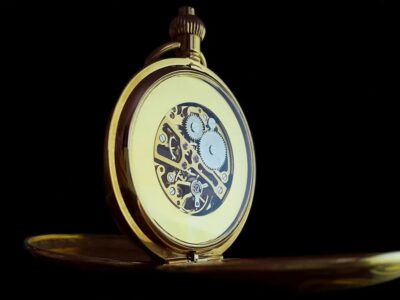A living trust can serve as a powerful estate planning vehicle when established for the right reasons and structured correctly. However, before determining whether a trust aligns with your objectives, it is essential to consider both the benefits and limitations of this arrangement. In this article, we explore the key advantages and potential drawbacks of a living trust, along with important factors to bear in mind when setting one up.
ADVANTAGES OF A LIVING TRUST
Preserve wealth with estate pegging: A significant advantage of a living trust is that it allows you to peg the value of assets in your personal estate while enabling the growth on those assets to take place in the trust. This can reduce your estate duty and other tax liabilities. Transferring growth assets—such as a second property or a share portfolio—into a living trust can be an effective strategy to fix your estate value for estate duty purposes. You can reduce the value of your loan account over time by utilising your R100 000 annual donations tax exemption, thereby further reducing your estate duty exposure.
Safeguard assets from creditors: Living trusts can offer protection against creditors, provided they are not created with the intention of prejudicing them. When assets are sold to a trust, the loan account appears in your personal estate and may be vulnerable to creditor claims. However, as the loan account is reduced over time, the asset protection benefits increase. In high-risk professions or business ventures, a living trust can be a valuable structure for shielding personal assets.
Care for dependants with disabilities: If you have a dependant with a permanent disability, you may register a Special Trust Type A under Section 6B(1) of the Income Tax Act. This trust type is ideal for parents of children with special needs, ensuring long-term financial care. To qualify for the favourable tax regime, the trust must be set up solely for the benefit of a person with a permanent physical or mental disability. If registered correctly, these trusts are taxed at the same rates as individuals (18%–45%) and enjoy the R40 000 annual CGT exemption and R2 million primary residence exclusion.
Build in long-term flexibility: Trusts—particularly discretionary trusts—offer long-term flexibility by allowing trustees to adapt distributions of income and capital based on changing circumstances. This is useful in the face of events such as death, divorce, insolvency, legislative changes, or shifts in family dynamics. Trustees have discretion over distributions, ensuring that benefits are allocated appropriately over time.
Plan ahead for mental incapacity: If you are concerned about the potential loss of mental capacity, such as through dementia, a living trust can help you prepare. While you are still mentally capable, you can transfer assets into a trust and appoint trustees you trust to manage them in your best interests. This can provide peace of mind that your financial affairs will be handled responsibly should your health deteriorate.
Transfer assets efficiently across generations: Because trusts do not die, the assets they hold can be transferred to future generations without triggering estate administration. This makes a trust an effective multi-generational vehicle for protecting and managing family assets. It can also help avoid complications associated with indivisible assets such as farms or holiday homes. Assets in a trust are generally insulated from divorce, insolvency, or disputes that could disrupt individual estates.
Ensure continued access to capital on death: One of the more practical advantages of a living trust is that its accounts and assets are not frozen upon your death. While your personal estate undergoes administration—which can take up to two years—trust assets remain accessible, ensuring your dependants have ongoing financial support. This can be particularly useful for funding immediate living expenses or paying for education and healthcare after your passing.
Benefit from professional asset management: Where the trust holds investment assets, appointing professional trustees with experience in financial management can help ensure prudent investment decisions are made. This can be vital if the trust is intended to support beneficiaries financially over the long term.
DISADVANTAGES OF A LIVING TRUST
Relinquishing control of assets: By law, when you transfer assets into a trust, you must relinquish ownership and control of those assets – bearing in mind that if you continue to exercise control, the trust could be deemed invalid. It’s therefore critical to understand that trustees, not the founder, must control the trust assets. On this note, be especially cautious about transferring capital earmarked for retirement, as the trustees’ intentions may not align with your own future needs. Further, it is important to ensure that your trust deed clearly outlines the trustees’ powers and responsibilities.
Increased administrative and compliance costs: Establishing and maintaining a trust adds complexity and expense. You must appoint at least one independent trustee, and if you choose a professional, there will be ongoing fees. Set-up costs, bank fees, accounting, and secretarial duties all contribute to the annual cost of administering a trust. These factors should be carefully weighed before proceeding.
Risks of appointing the wrong trustees: Choosing trustworthy, capable trustees is vital. You are effectively handing them control over assets that may be critical to your family’s future. It’s often unwise to appoint children as trustees while you are alive, as family dynamics and differing intentions can create conflict or mismanagement of assets. Trustees must always act in the best interests of beneficiaries.
Risk of being deemed a sham or alter-ego trust: If there is insufficient separation between yourself and the trust—particularly if you maintain control or treat trust assets as your own—a court may find that the trust is a sham or alter-ego structure. This could result in the trust being disregarded and its protections lost. As such, it’s essential that trustees act independently and that the trust is properly managed from inception.
Tax and CGT implications when selling to a trust: Selling assets to a trust and reducing the associated loan account using your annual donations tax exemption is a popular strategy, but it comes with caveats. You may only reduce the loan by R100 000 per year without incurring additional donations tax. The initial sale may trigger a capital gains event, meaning you could be liable for CGT at the time of transfer. Further, if you die before the loan is fully reduced, the remaining value will be included in your estate for estate duty purposes.
Living trusts can offer significant estate planning benefits, including tax savings, asset protection, and intergenerational wealth transfer—but they are not suitable for everyone. If set up and administered correctly, they can be a powerful tool in your financial plan. As such, be sure to seek professional fiduciary advice to ensure your trust structure aligns with your goals and legal obligations.
Have a fantastic day.
Sue








